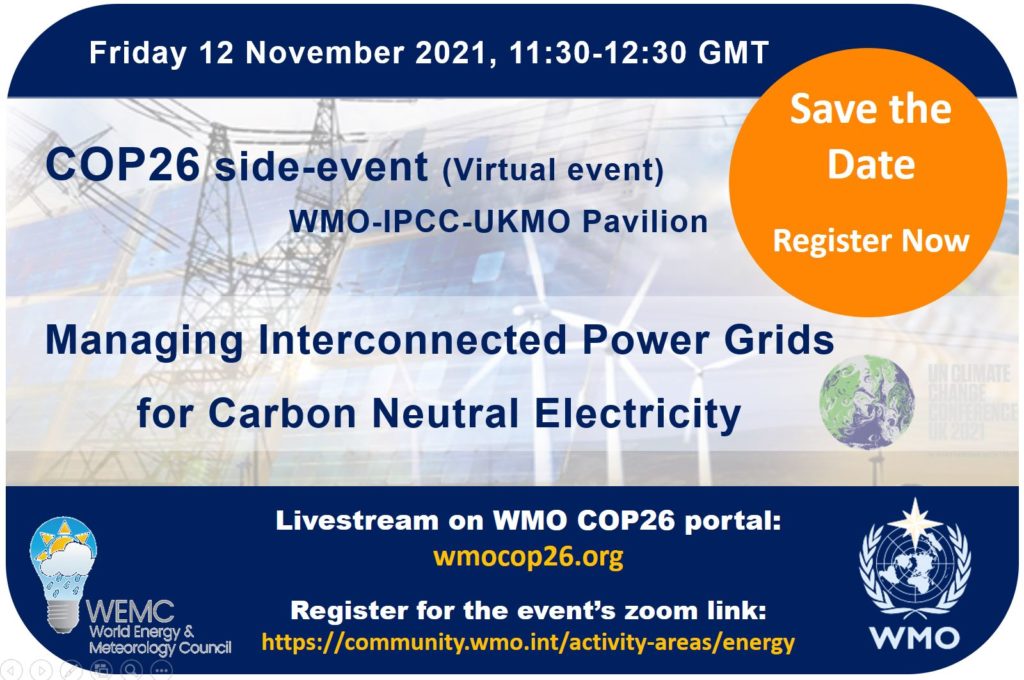About the event:
As climate change and weather and climate extreme events increasingly pose threats to the stability of our energy supply, building resilient renewable energy towards achieving net-zero emission 2050 targets on the national and international levels is of critical importance. The role of weather and climate services for the current and future power grids is crucial to increase energy infrastructure resiliency, which in turn, will guarantee more secure and reliable green electricity services to the society.
This event explored the requirements of the power sector to access and interpret weather, water, and climate information in order to optimize the power generation and securing supply of low-carbon electricity. The event also touched upon the social-economic synergies through the lenses of climate change and energy transition. Our speakers combined industrial, technical, and scientific perspectives:
- They provided an overview of the imposed risks of weather extremes and climate change to the power sector; Discussed the importance of weather and climate services to increase the resiliency of the power supply chain, presenting case studies in China and other countries;
- They stressed the need for decarbonizing global and national energy mix under energy transition, and to deliver clean energy at speed and scale, highlighting the role of decentralized options by providing successful examples in China;
- They elaborated energy transition challenges and opportunities for electricity, and discussed the role of weather and climate services to address the needs, including accurate weather and climate forecasts, etc.;
- They depicted a future path towards more complex, interconnected smart grids under climate change, and illustrated the role of data and technology in this journey.
The event was organized by the WMO and WEMC.
Additional information:
- Click here to watch the recorded video
- Click here to see all the WMO Energy-related events at COP26
